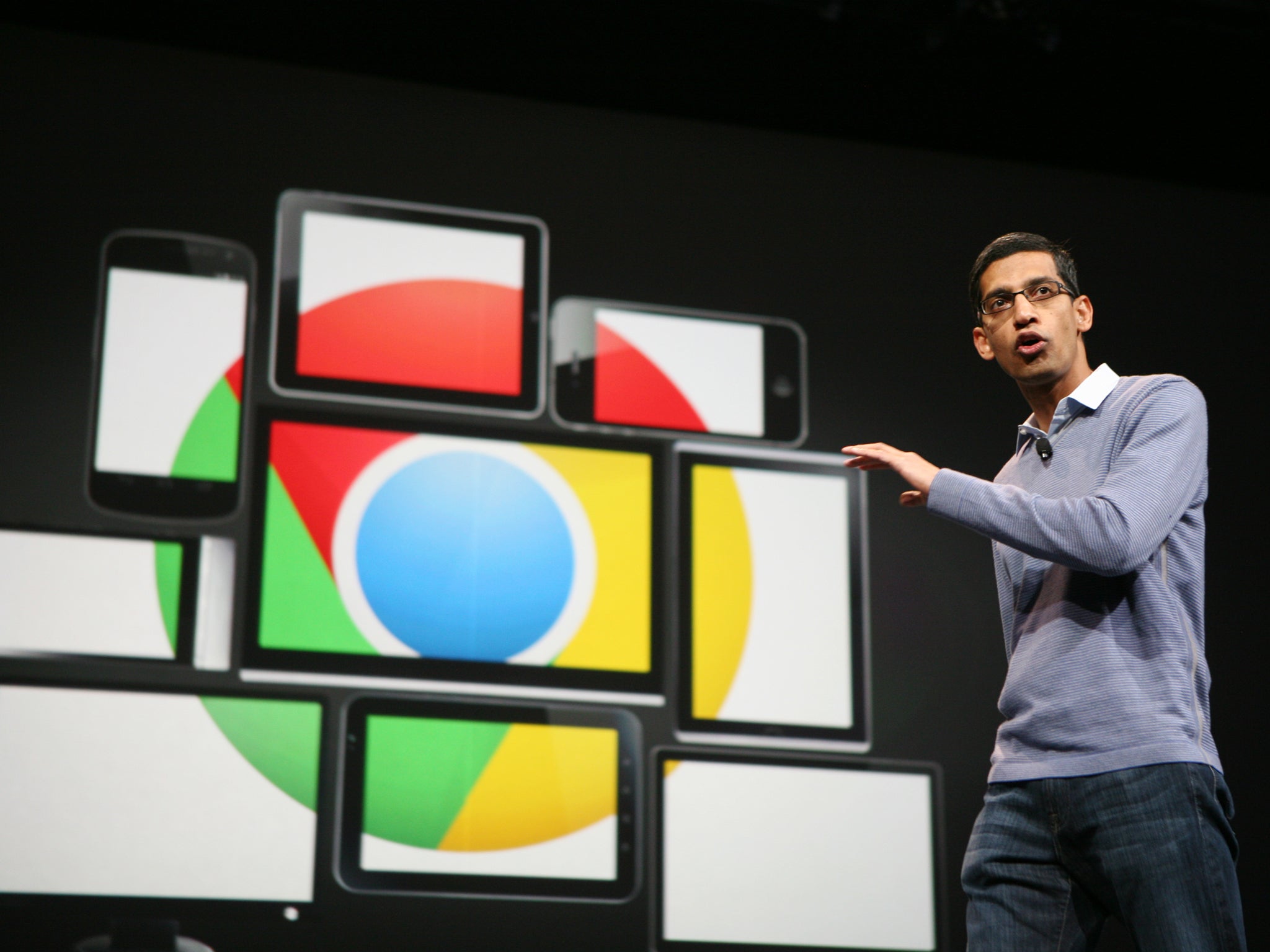Porn viewing history could be stored in Chrome long after incognito window is closed, researcher claims
The feature is supposed to be a way of viewing sites without them leaving a history — but that might not be the case

Google Chrome’s incognito mode could show pornographic videos hours after windows are closed.
Even after a window has been shut, its contents could pop up in apparently innocent places, according to one researcher. And since the tool is often used to look at pornographic videos and other sensitive content, that could lead to significant embarrassment and problems.
Evan Andersen, an engineering student at the University of Toronto, said that he found the problem when he opened up a game of Diablo III. But what actually popped up on the screen was a pornographic site that he had been looking at hours previously, he said.
Mr Anderson claims that the problem arises because of a problem with an Nvidia chip. The chip doesn’t erase its contents when it opens up a new application, he claimed, meaning that it can leak into the other.
If the contents of that last window was a pornographic video that was apparently hidden in an old window, then that could easily pop back up when looking at something else.
Mr Andersen said that it was a “serious problem”
“It breaks the operating system’s user boundaries by allowing non-root users to spy on each other,” he wrote. “Additionally, it doesn’t need to be specifically exploited to harm users – it can happen purely by accident.
“Anyone using a shared computer could be exposing anything displayed on their screen to other users of the computer.”
Mr Andersen said that he had told Nvidia and Google about the bug two years ago. He said that Google would not fix it “because Google Chrome incognito mode is apparently not designed to protect you against other users on the same computer (despite nearly everyone using it for that exact purpose)”.
Nvidia told The Next Web that the problem was blamed on Apple, because it had “not seen this issue on Windows”. Apple has been contacted for comment.
Incognito mode can be used for a range of different purposes — including heading to websites without any cookies installed, or browsing while on a share computer. But it has acquired the informal name of “porn mode” because of the other, more unseemly use to which it is often put.
Chrome’s own warning when opening up the mode makes clear that it isn’t 100 per cent safe from prying eyes. “Going incognito doesn’t hide your browsing from your employer, your internet service provider, or the websites you visit,” a message that pops up when a user opens one of the windows reads.
Join our commenting forum
Join thought-provoking conversations, follow other Independent readers and see their replies
Comments
Bookmark popover
Removed from bookmarks